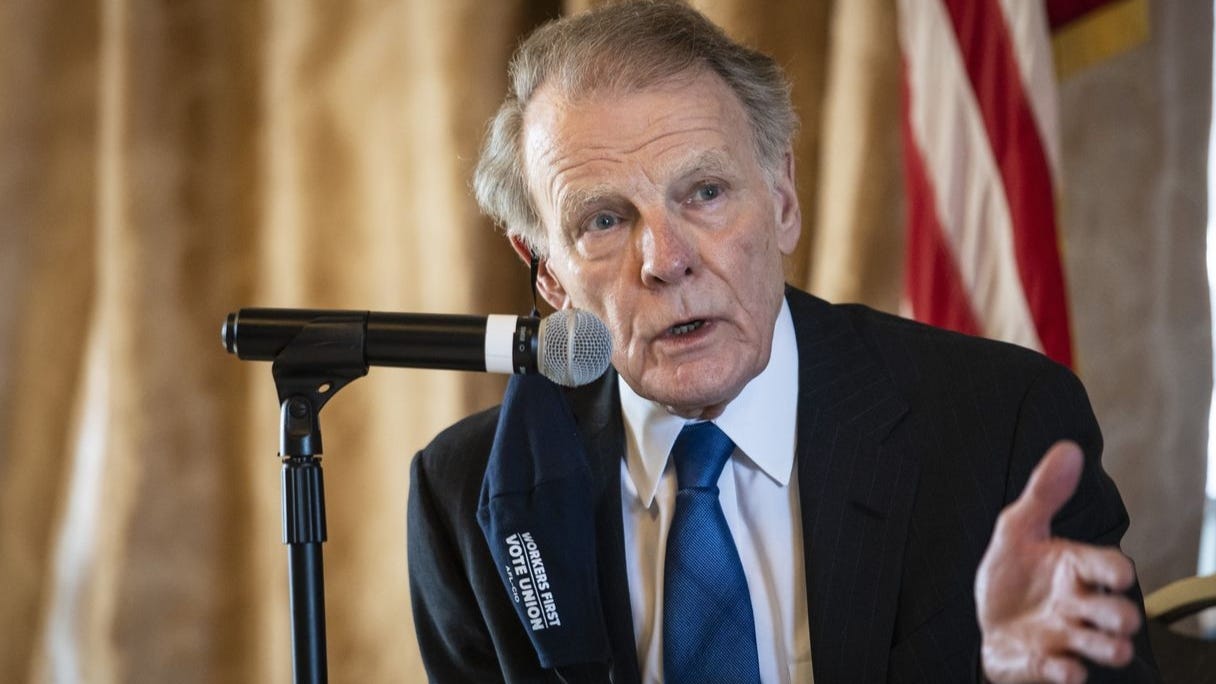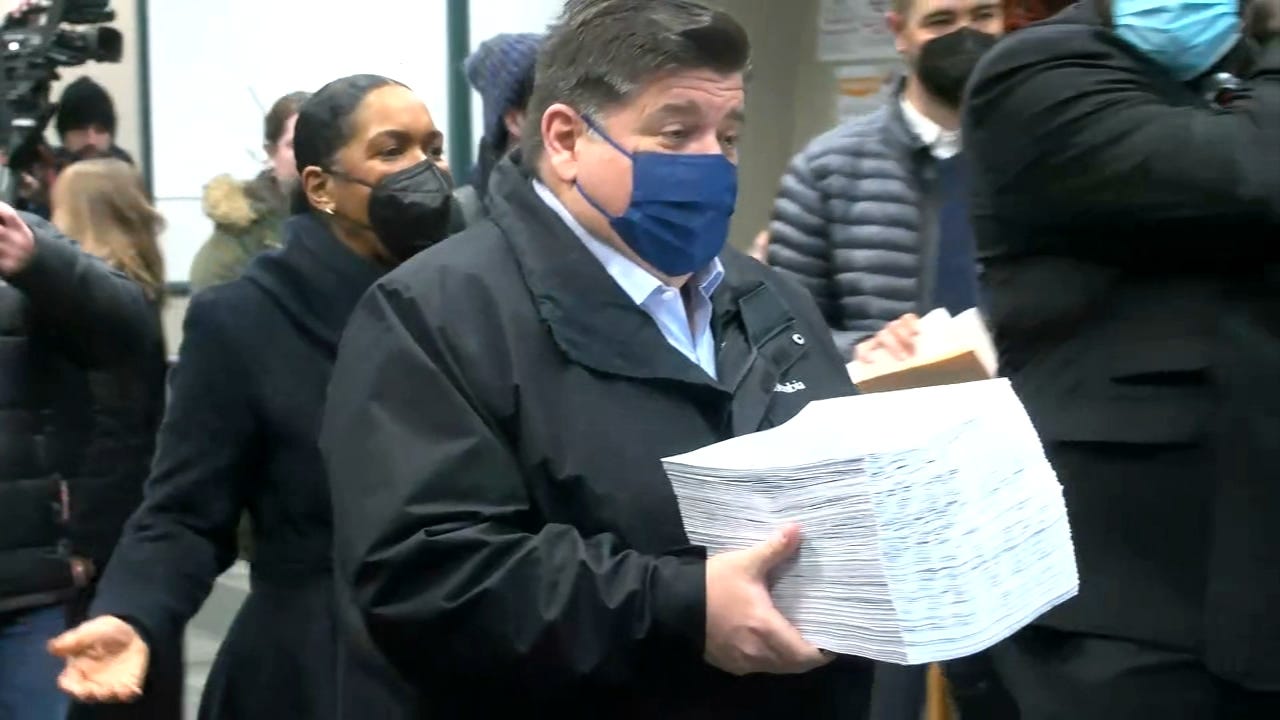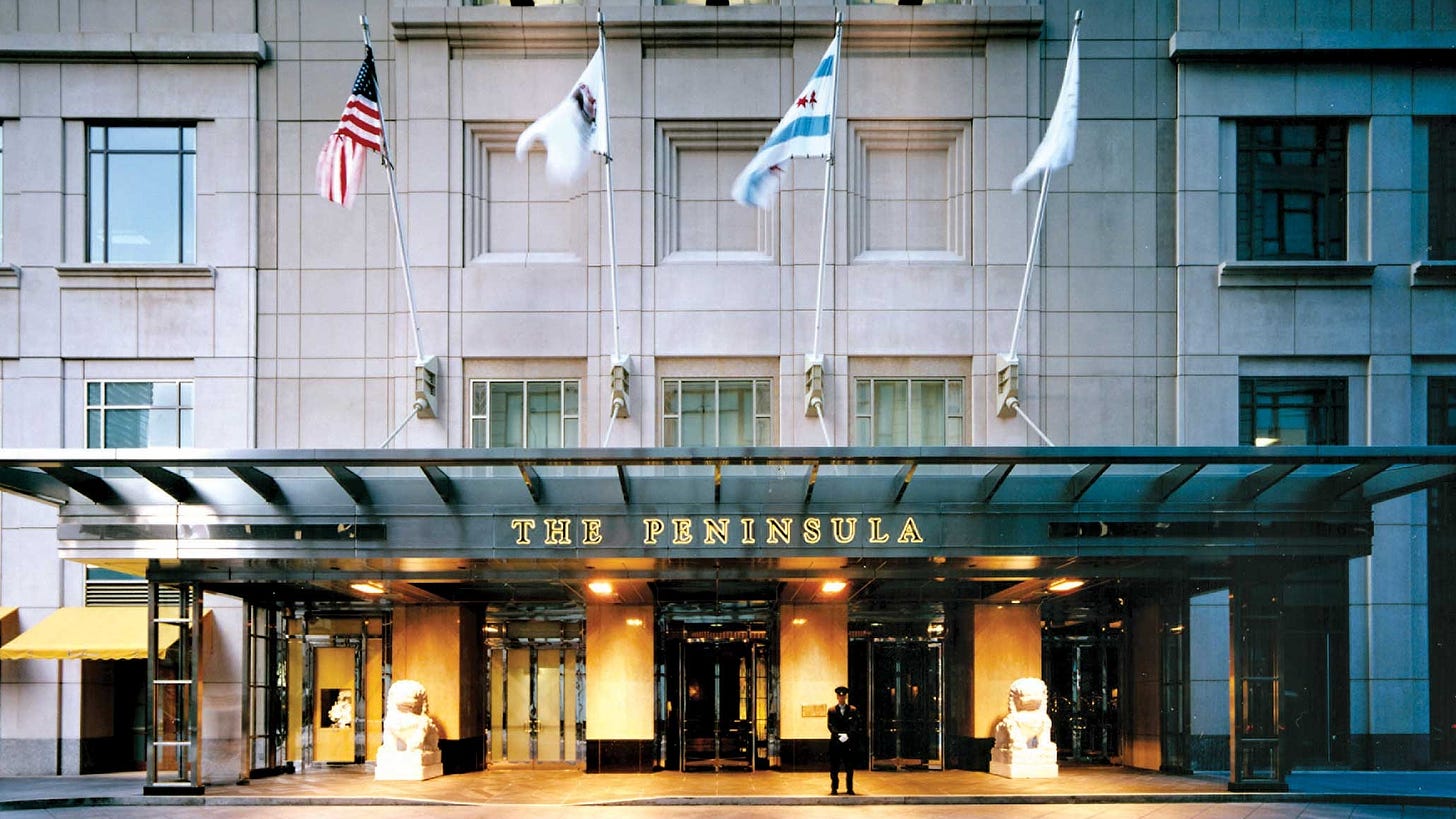THE ILLINOIZE: Thursday Free for All
March 10, 2022
Good morning. Welcome to the Thursday Free for All.
We’re continuing to keep track of candidate filings for the June primary here. We’re keeping an eye on a few notable names who haven’t filed yet and who haven’t responded to us when we’ve checked in on their petitions—most notably GOP gubernatorial candidate Jesse Sullivan.
I’m scheduled to talk to the great Chicago Tribune reporter Ray Long later this morning about his new well-timed book on Michael Madigan. If you have any specific questions, I’m happy to ask them. Just drop me a note at patrick@theillinoize.com. Subscribers should see the video later today.
Speaking of subscribers, you get things like first dibs on our video interviews, breaking news alerts, and two specific subscriber-only newsletters each week just by becoming a paid subscriber.
A subscription costs you roughly a gallon of gas each month (oy), but provides you with, I hope, more entertainment. It’s just $75 for a year and $7.99 per month. Your subscriptions are the lifeblood of what we’re doing here. I hope you’ll help us continue to grow and subscribe now. Just click below.
That’s that.
Let’s get to it.
YOUR THURSDAY FREE FOR ALL
(note: we’re not responsible for paywalls and restrictions from other news outlets)
Ex-Speaker Michael Madigan pleads not guilty to federal racketeering charges in corruption case (Chicago Tribune)
Madigan didn’t say a word during the brief telephone hearing, instead letting his attorney, Gil Soffer, enter a not guilty plea on his behalf to a 22-count indictment alleging a nearly decadelong racketeering conspiracy that included numerous acts of bribery and extortion.
During the 10-minute session, which, over the objection of prosecutors, was held remotely due to the building’s COVID-19 protocols, U.S. Magistrate Judge Jeffrey Cole went over the terms of Madigan’s bond, which doesn’t require the former speaker to put up any money.
He also had prosecutors recite each of the counts Madigan faces along the maximum penalties, which range from five years in prison for bribery up to 20 years behind bars for the main count of racketeering.
With that, the hearing was over. Madigan’s case was up next for a status hearing April 1 before U.S. District Judge John Robert Blakey, who will set a schedule for discovery and pretrial motions. It’s likely Madigan’s appearance would be waived for that hearing, Cole said.
The arraignment was a far cry from the hoopla created by other pre-pandemic political corruption cases at the Dirksen U.S. Courthouse, where politicians from Ald. Edward Burke to Gov. Rod Blagojevich have been forced to walk through a gantlet of reporters and television news cameras.
But the entering of a formal plea had the same effect, essentially starting the legal clock on Madigan’s case ticking toward a potential trial.
It could also mark the only time in the foreseeable future when Madigan will be required to participate in a hearing in the case at all, since most judges have waived defendants’ appearances in nonviolent criminal cases, particularly during the pandemic.
Related: Mike Madigan accused by feds of hitting up Ald. Solis to help Madigan’s son win business (Chicago Sun-Times)
Opinion: Indictment latest — and worst — indignation for state's biggest boss (Champaign News-Gazette)
Opinion: Digital signatures for candidate petitions are no-brainer to improve democracy in Illinois (Chicago Sun-Times)
It’s 2022. Tourists can visit space. Cars can drive themselves. You can check in with your doctor on Zoom.
Yet if you come across a candidate gathering signatures to get on the ballot for an election in Illinois, you’ll see them carrying a sheaf of dog-eared papers covered in a mess of handwriting.
This is not just an outdated way of doing things. It’s actually a big problem for our democracy.
For candidates to get their name on the ballot, they have to gather a certain number of signatures from registered voters in the district they’re running in. The number depends on the office, but it can range from a few dozen for a village board seat to thousands for governor.
In Illinois, the signature-gathering process is fraught with pitfalls. There is no immediate way to know if a person you ask for a signature lives in your district or is registered to vote, or whether they wrote their address information correctly. Candidates often collect many more signatures than required, knowing some might get thrown out because the signers were ineligible or there were other problems with the signatures.
This system benefits incumbents, party insiders and wealthy candidates who know how to navigate the petition challenge labyrinth, or can afford to hire those who do.
It harms candidates who may have great ideas and talent, but who have fewer resources or know-how about how to work the system.
Most importantly, it harms voters. The archaic system creates another costly barrier to public office for candidates who are from diverse backgrounds or independent of party machines. And it deprives Illinoisans of the opportunity to be represented by quality candidates who get kicked off the ballot for silly reasons.
I actually go farther than this. I think petitions are dumb and don’t show whether a candidate is organized or qualified to be on the ballot. That said, I’m all for a checklist of things a candidate has to do or disclose, like a financial disclosure, and can file online closer to the election.
Petitions, challenges, and the whole maze of rules and regulations leads to more nonsensical challenges than it does removing qualified people from the ballot.
Chicago teachers ‘pissed off and exhausted’ over mask mandate lifting, but CPS vows to work with union to avoid another work stoppage (Chicago Tribune)
The head of Chicago Public Schools said Tuesday he does not anticipate a teacher work stoppage from the upcoming removal of the districtwide mask mandate, even as the Chicago Teachers Union swiftly vowed to fight the decision.
During an online question-and-answer session, CPS CEO Pedro Martinez attempted to tamp down concerns of another heated labor dispute, in response to a question on whether lifting the CPS mask requirement violated the city’s COVID-19 safety agreement with the union.
In his characterization of ongoing CPS-CTU relations, Martinez said: “I feel there’s more agreement than disagreement.”
Indicative of the union’s distrust of CPS leadership, CTU Vice President Stacy Davis Gates called Martinez’s claims that the parties agree more than disagree “a big, fat slap in the face when you unilaterally cancel an agreement that you just made.”
“I don’t know. They just took action. Why in the hell do we have to keep taking action?” Davis Gates said in a phone interview Tuesday. “We’re not wrong. The only safety policies that we’ve had in this district are the ones our members sacrificed for. The mayor doesn’t have a safety plan. Her doctor doesn’t have a safety plan. The CEO doesn’t have a safety plan. Hell, the Board of Education just reaffirmed the use of face coverings in schools just two weeks ago. They don’t have a plan.”
Davis Gates said CTU members are “pissed off and exhausted” in the wake of the mask announcement.
Related: CTU President Sharkey tests positive for COVID-19 (Chicago Sun-Times)
Illinois hotels seeking $1,500 per room in Pritzker’s budget (Crain’s Chicago Business)
Still reeling from a slowdown in convention business and visitors, the Illinois Hotel & Lodging Association is backing a bill that would give one-time grants of $1,500 per room for every hotel in the state—a total of $250 million the organization proposes should come from the state’s leftover American Rescue Plan Act funding.
The Hotel Jobs Recovery Plan—designed to help hoteliers hire back employees in the ramp up to higher summer occupancy—is being carried by Illinois House Majority Leader Greg Harris (HB5690) and Elgie Sims in the Senate (SB4184). Its main sponsors are hoping the proposal gets lumped into Gov. J.B. Pritzker’s budget proposal, and say it’s one of few measures this session with bipartisan support.
That $250 million represents 3% of the total American Rescue Plan funding the state received, and would nearly match the $300 million “Back to Business” program included in Pritzker’s last budget. That budget also included $10 million for tourism grants, and nearly $124 million directly to convention spaces and visitors bureaus across the state.
Michael Jacobson, president and CEO of the Illinois Hotel & Lodging Association, said at a press conference today that while hotels received help through “Back to Business” and “Business Interruption Grant” programs, the industry has been among the slowest to recover and has been left out of some of the Chicago's relief plans. Now, hotels are at risk of foreclosure and being swept up by real estate trusts.
Color me a Negative Nancy if you want, but I’m surprised this is being so well received by the General Assembly, especially as the giant hole in the Unemployment Insurance Trust Fund continues to grow.
SOME TOP LINKS FROM THE WEEK SO FAR
JOIN US













